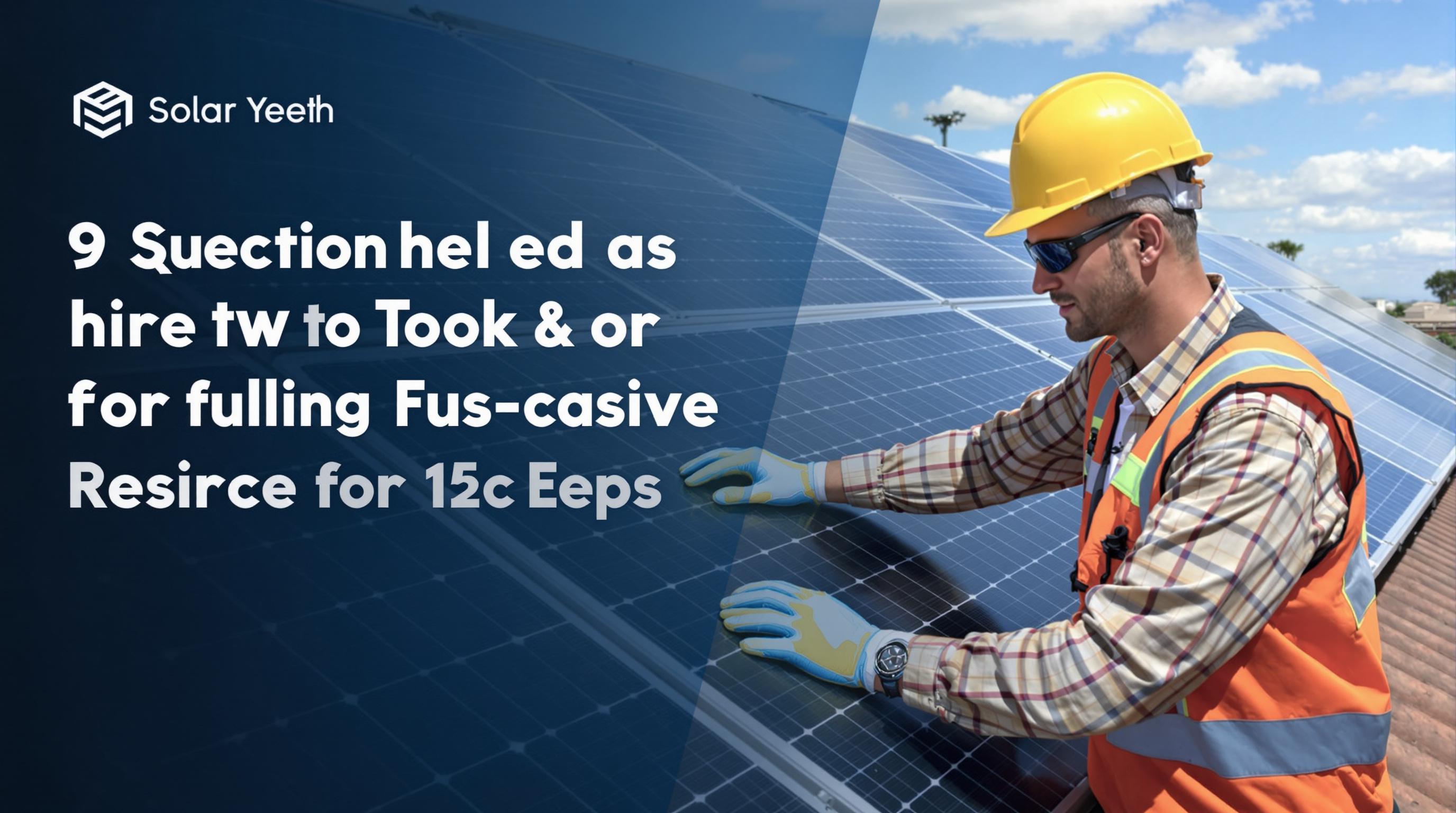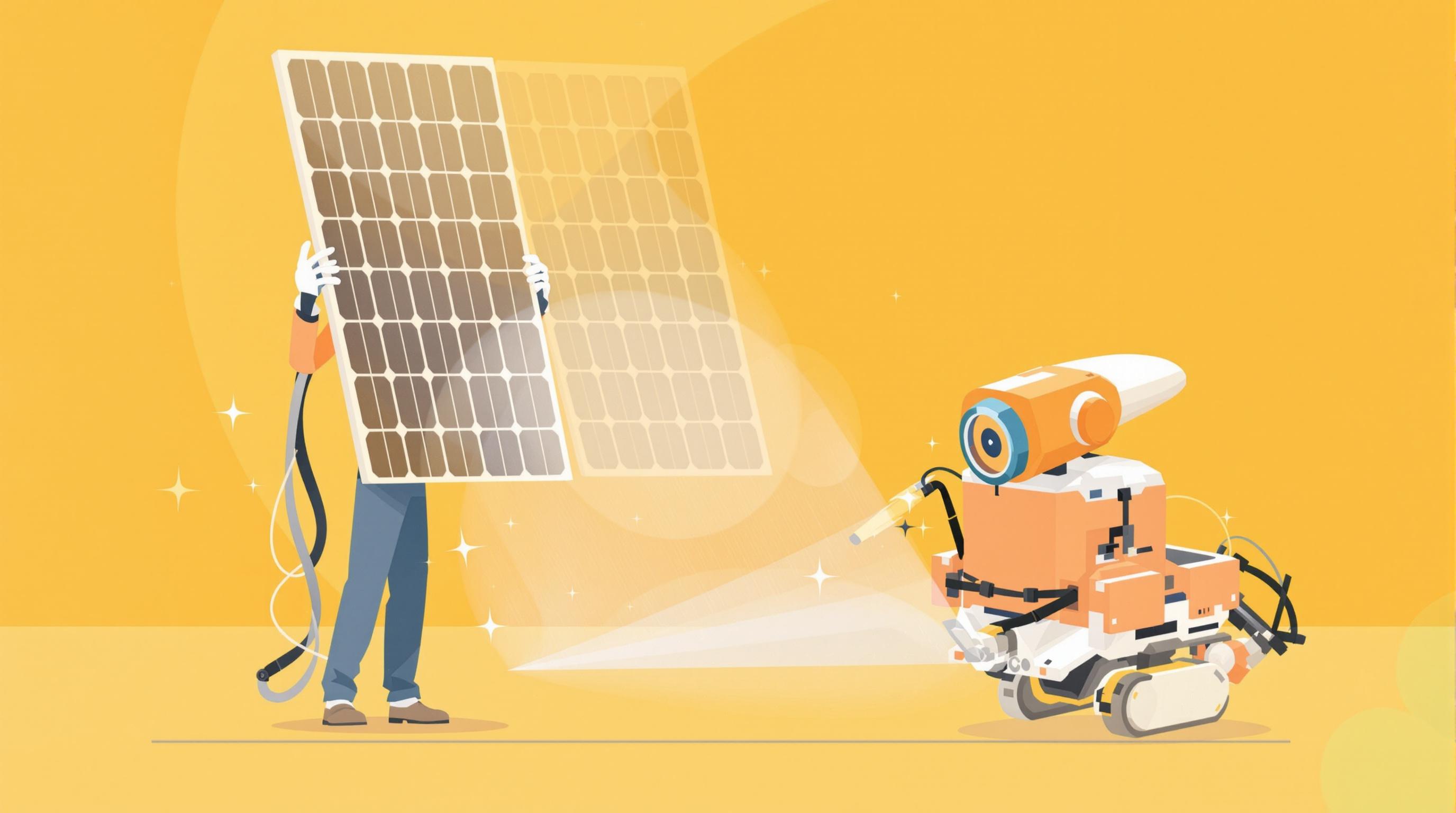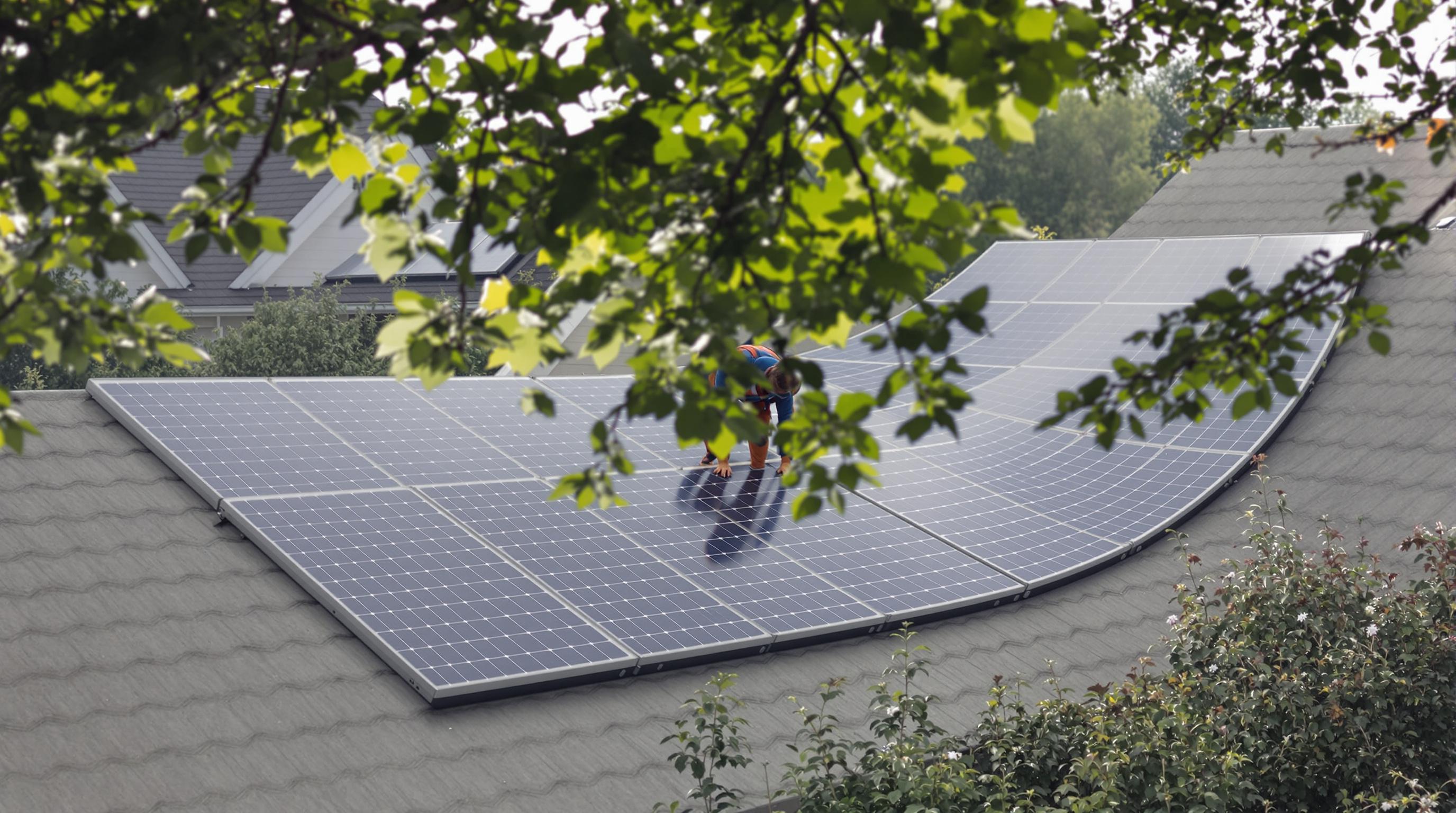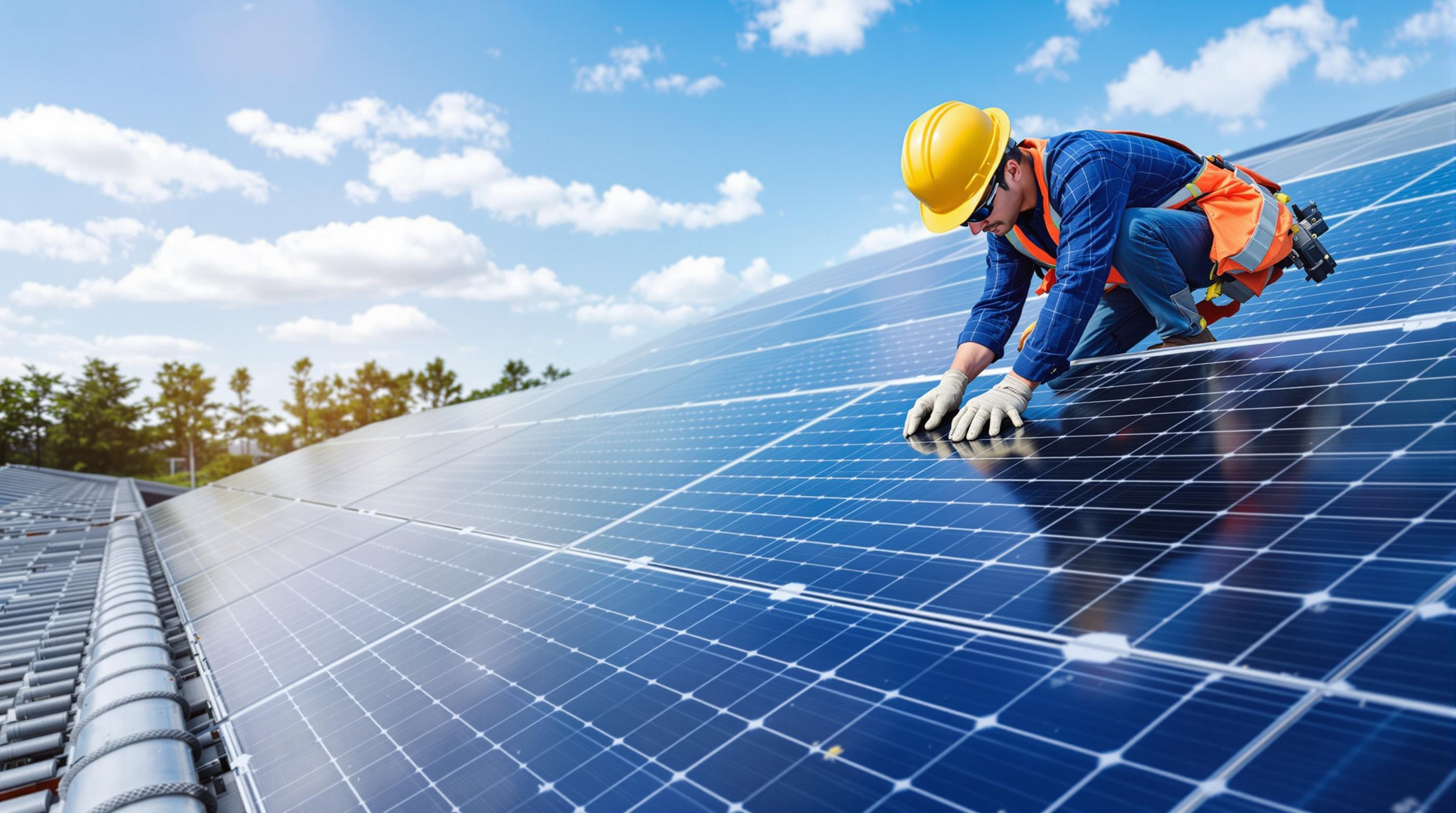Related Articles
- 6 Revolutionary Solar Panel Cleaning Robots Since 2019 Rated for Efficiency and Contractor Appeal
- How Unexpected Weather Patterns Are Shaping Homeowner Choices in Solar Installation Partnerships
- How Solar Inverter Noise Pollution Affects Urban Wildlife and What Manufacturers Are Overlooking
- How Solar Inverters Influence Home Resale Value and What Buyers Rarely Consider Before Purchase
- How Microclimates Secretly Shape Solar Energy Output in Unexpected Urban and Rural Landscapes
- The Quiet Role of Microclimates in Shaping Solar Harvesting Outcomes Beyond Conventional Efficiency Measures
9 Strategic Questions to Ask Before Hiring a Solar Contractor for Optimal Long-Term System Performance
9 Strategic Questions to Ask Before Hiring a Solar Contractor for Optimal Long-Term System Performance
9 Strategic Questions to Ask Before Hiring a Solar Contractor for Optimal Long-Term System Performance
Choosing the right solar contractor is essential for ensuring the success and longevity of your solar energy system. A well-installed system not only maximizes energy production but also minimizes maintenance costs over time. Asking the right questions before hiring can provide insight into the contractor's expertise, approach, and commitment to quality.
This article outlines nine strategic questions designed to help homeowners and businesses make informed decisions when selecting a solar contractor. These questions address topics from experience and certifications to warranties and customer support. Understanding what to ask can protect your investment and help ensure your solar system performs optimally for decades.
By approaching the hiring process with these inquiries, you position yourself to identify trustworthy professionals who adhere to industry standards and deliver high-quality solar installations tailored to your needs. Let’s explore each question and why it matters.
1. How Much Experience Do You Have With Solar Installations?
Experience is a critical factor when hiring a solar contractor. Contractors with extensive experience are more familiar with different system types, installation challenges, and local regulations. They can anticipate potential issues and provide practical, tested solutions. An experienced team also tends to have established subcontractors and suppliers, ensuring smoother project execution.
Ask the contractor how many solar projects they have completed and request references or case studies from similar installations. This demonstrates their ability to deliver successful outcomes under conditions similar to yours. Additionally, inquire if the team members are consistently involved or if they subcontract key tasks, as continuity can impact quality and reliability.
Experience combined with a strong portfolio can provide confidence in the contractor’s competency. According to the Solar Energy Industries Association (SEIA), choosing experienced installers is one of the best ways to safeguard system performance over time.
(Source: SEIA, 2023)
2. Are You Licensed, Insured, and Certified?
Proper licensing and insurance are essential for any solar contractor. Licensing verifies that the contractor complies with state and local regulations and has met certain professional standards. Without it, you risk hiring an unqualified team that may jeopardize your project and property.
Insurance protects both you and the contractor from liability in case of accidents or damages during installation. Confirm that the contractor carries general liability insurance and workers' compensation. Asking for proof of coverage before work begins helps protect your investment.
Certifications from recognized organizations such as the North American Board of Certified Energy Practitioners (NABCEP) indicate that the installers have undergone rigorous training and demonstrated technical knowledge. NABCEP certification is widely regarded in the solar industry as a mark of quality and professionalism.
(Source: NABCEP, 2023)
3. Can You Provide Detailed, Transparent Quotes?
Transparency in pricing is fundamental when hiring a solar contractor. Request a comprehensive written quote that breaks down costs for equipment, labor, permits, incentives, and any additional fees. This allows you to understand exactly what you are paying for and compare bids accurately.
Beware of exceptionally low bids that may omit necessary components or use lower-quality materials. A transparent quote should include panel brands, inverter models, warranty details, and projected system performance. Detailed documentation safeguards you from unexpected expenses later in the project.
Good contractors are willing to explain each element of the quote and answer your questions patiently. Clarify the payment schedule and conditions to avoid surprises. According to the Department of Energy, understanding financial details upfront promotes smoother installations and stronger customer satisfaction.
(Source: U.S. DOE, 2022)
4. What Type of Equipment and Brands Do You Use?
The quality of solar panels, inverters, and other components significantly affects system longevity and efficiency. Ask your contractor which brands they use and why. Research those brands to verify their reputation, warranty terms, and performance records.
Some installers prefer high-end equipment with longer warranties and better efficiency ratings, while others may offer budget options with shorter lifespans. Ensure the equipment meets your goals for reliability, energy production, and return on investment.
Inverter quality often impacts system durability. String inverters, microinverters, and power optimizers each have pros and cons depending on your property’s shading and layout. An informed contractor will recommend the best equipment for your unique situation.
(Source: EnergySage, 2023)
5. Do You Handle Permitting, Inspections, and Interconnection?
Solar installation involves navigating permits, fulfilling inspection requirements, and coordinating with utility companies for grid interconnection. Confirm that the contractor manages these administrative steps, as this expertise prevents delays and regulatory issues.
Contractors experienced in local permitting processes expedite approvals and ensure compliance with zoning codes and electrical standards. They should also guide you through securing net metering agreements or other utility incentives.
A contractor handling all these steps reduces your workload and risks. Failure to properly manage permits or utilities can cause costly rework or prevent system activation, so choose a professional who offers comprehensive project management.
(Source: SEIA, 2023)
6. What Warranties and Service Guarantees Do You Offer?
Warranties provide essential protection for your solar system investment. Ask what warranties the contractor offers on both equipment and installation workmanship. Typical equipment warranties cover 10-25 years, while workmanship warranties range from 1 to 10 years.
Service guarantees or maintenance plans are valuable for long-term system health. Inquire whether the contractor provides ongoing monitoring services, performance checks, and repair support. These services help identify underperformance early and keep the system functioning optimally.
Strong warranty coverage and reliable post-installation support distinguish reputable installers from less dependable ones. The National Renewable Energy Laboratory highlights that comprehensive warranties can improve system uptime and durability.
(Source: NREL, 2022)
7. Can You Share Customer References and Reviews?
Before finalizing a contract, ask for references from previous customers or access to online reviews. Speaking directly with former clients provides firsthand insight into the contractor’s professionalism, communication, and workmanship quality.
Look for consistent positive feedback regarding timeliness, problem resolution, and system performance. Verified reviews on websites like Better Business Bureau, Google, or industry platforms also help confirm the company’s reputation.
Reputable contractors will gladly share references and encourage you to do your due diligence. Negative or vague responses may be a red flag. Research helps avoid hiring untrustworthy providers and ensures a smoother installation experience.
(Source: SolarReviews.com, 2023)
8. How Do You Ensure System Design Optimizes Energy Production?
System design profoundly influences solar performance. Ask how the contractor assesses your property’s solar potential, shading, roof condition, and electrical infrastructure. Tailoring the layout and components maximizes energy yield and longevity.
Effective design includes precise panel placement, proper inverter selection, and integration with existing electrical systems. Some contractors use solar modeling software and site measurements to create optimized designs. Confirm that your contractor incorporates these tools.
A well-crafted design balances cost with performance and adapts to your energy needs and future plans. According to the National Solar Jobs Census, thoughtful system engineering leads to higher customer satisfaction and system efficacy.
(Source: The Solar Foundation, 2023)
9. What Is Your Approach to Post-Installation Support and Monitoring?
Solar systems require periodic maintenance and monitoring to maintain peak performance. Ask if the contractor offers ongoing support services such as performance monitoring, preventive maintenance, and quick response to technical issues.
Many installers provide online monitoring dashboards and alerts to notify you if the system is underperforming. Early detection of problems such as inverter faults or panel damage can prevent energy loss and expensive repairs.
Reliable post-installation service builds long-term trust and protects your investment. Assess the contractor’s responsiveness and availability for future service needs before hiring. Satisfied customers often cite quality support as a key factor for positive solar ownership experiences.
(Source: EnergySage, 2023)




